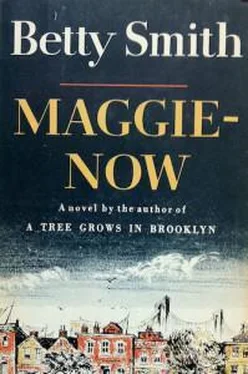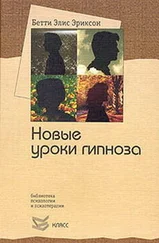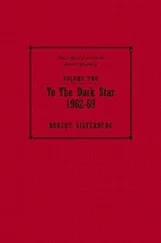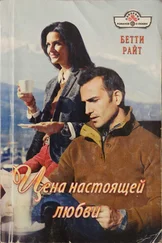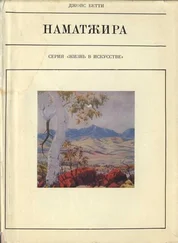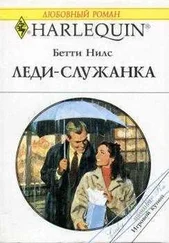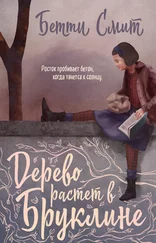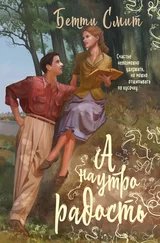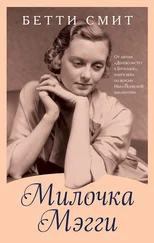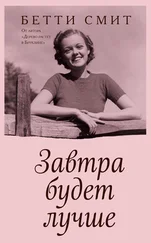Бетти Смит - Maggie-Now
Здесь есть возможность читать онлайн «Бетти Смит - Maggie-Now» весь текст электронной книги совершенно бесплатно (целиком полную версию без сокращений). В некоторых случаях можно слушать аудио, скачать через торрент в формате fb2 и присутствует краткое содержание. Жанр: Проза, на английском языке. Описание произведения, (предисловие) а так же отзывы посетителей доступны на портале библиотеки ЛибКат.
- Название:Maggie-Now
- Автор:
- Жанр:
- Год:неизвестен
- ISBN:нет данных
- Рейтинг книги:3 / 5. Голосов: 1
-
Избранное:Добавить в избранное
- Отзывы:
-
Ваша оценка:
- 60
- 1
- 2
- 3
- 4
- 5
Maggie-Now: краткое содержание, описание и аннотация
Предлагаем к чтению аннотацию, описание, краткое содержание или предисловие (зависит от того, что написал сам автор книги «Maggie-Now»). Если вы не нашли необходимую информацию о книге — напишите в комментариях, мы постараемся отыскать её.
Maggie-Now — читать онлайн бесплатно полную книгу (весь текст) целиком
Ниже представлен текст книги, разбитый по страницам. Система сохранения места последней прочитанной страницы, позволяет с удобством читать онлайн бесплатно книгу «Maggie-Now», без необходимости каждый раз заново искать на чём Вы остановились. Поставьте закладку, и сможете в любой момент перейти на страницу, на которой закончили чтение.
Интервал:
Закладка:
They let the cars go by, waiting for an "open" trolley to come along. They sat in the front seat so they could see far ahead. The car picked up people along the way until it was filled with people in fresh summer clothes. Most of the men wore new straw hats because Decoration Day was the official day to start wearing them.
In no time at all, the car was out of the city and in the country heading for Cypress Hills in Queens County. Grass now grew
~ ion ~
between the car tracks. Daisies, buttercups and sweet, purple clover grew in empty lots. Bouncing Bet grew along the car tracks and seemed to be running ahead of the trolley.
"It has another name," explained Mary. "Soapwort. And it loves the tracks: car tracks, train tracks and wagon tracks. No matter w here you go, you see it along the tracks even growing out of cinders."
"Oh, smell that country air!" said a woman in the seat behind them. "Just smell it!"
"Yeah, it smells healthy," said her companion. "I feel years voungerd' Maggie-Now always remembered that warm, new-summer smell. It was like smelling buckwheat honey through warm dust.
They got off the trolley and had to walk several long blocks to the cemetery. It was a beautiful walk. The stores had the summer awnings down; red, or.mge, green-striped and scalloped. All the stores save a tombstone-cutting store or two were flower stores with the flowering plants outside on the sidewalk.
New, shallow, white-wood boxes held a dozen plants each. The plants were in bright terra-cotta clay pots fresh from the kiln. There were geraniums, passionately bright and clear and perfectly formed; red, rose, pink, white and even fuchsia. Blue hyacinths, with white veins, looked like clubs. (For some reason, the people called them "lilies.")
Then there were pots of blue-purple ageratum; a name no one could pronounce. Women asked the price of "them purplish flour-iss."
There were baby pots of lusty and eternal-looking ivy, and, for people with money, large pots of steel-blue hydrangea or coral-bell azaleas.
The plants were sprinkled hourly and little rivers of water ran down the sidewalk to the gutters. The awnings made shade, and the damp sidewalks and the flowers fresh-smelling from their sprinkling, and all the flower colors, and the way everyone looked so excited and the beautiful, sunny day all put together were like a gallant gauntlet slapped across the cheek of death.
Each year, Mary bought a geranium to plant on her father's grave. She let Maggie-Now choose the colon The girl went into a state of ecstatic indecision. Mary waited patiently, knowing that in the end the child would choose the brightest red in the lot. ~ Of 1 Mary, looking at the awnings and flowers and the smiling, eager vendors and the leisurely-moving people, said: "It's just like Paris."
"Was you ever in Paris, 1\lama-" aslred the girl.
«No."
"I'll take this red one, I\lama."
"That'll be thirty cents,' said the flower man, "and a nickel back when you bring the flower pot back."
Maggie-Now walked proudly with the geranium in the crook of her arm. She smiled at other little girls who carried potted plants and they smiled back.
There was a tombstone place on one corner. Its yard was crowded with stone angels and stone books opened in the middle, large stone crosses and smooth stone blocks all with smooth, blank spaces, waiting for a name.
One time they saw a m.m sitting in the sun on a camp chair in back of the store's yard. He worked with hammer and chisel, putting the finishing touches to a monument.
A child with stone curls rested with closed eyes, with her cheek on her folded arms. Thick stone angel wings s.
emed to sprout from the child's neck. The sculptor, noting Mag`,rie-Now's interest, said: "It's for an only child.' There was another tomhsto1e place a few blocks further on. It had a sign: When you think ot me, don't think of tombstones. But when you thinly of tombstones, think of me.
,Nlary always stopped to read it as though it were something new and she always smiled at the message.
A man, in business for himself, had a pushcart filled with watering cans. You could rent one for a dime, but he asked a quarter deposit on a can. Only the foolish threw money away like that. People brought their own tin cans from home for watering purposes Maggie-Now had brought her sand bucket for hauling water and the toy shovel and rake that went with it for gardening.
They went past the Hcbrew cemetery. The gates were high, like, Maggie-Now thought, three men standing on top of each other. There was a big it on star on top of the iron arch of the gate.
~ '' 9 1 "Why don't they have a cross like we do?" asked Maggie-Now. "Because it's a Jewish cemetery. That's their star of David and they pray to the star the way we pray to the cross. I told you that last year."
They got to the cemetery and Mary nodded to the caretaker sitting at the little wirldo\v of the little stone house inside the gates.
"A nice day," said Mary.
"Sure is," agreed the caretaker.
The cemetery looked like a lawn party that had gotten out of hand. It was crowded with women, children and even a few men. The young women wore light summer dresses and hats with ribbons and flowers. The older women wore whatever had been around the house usually a black dress or a suit skirt whose jacket had been given to the Salvation Army years ago, and a shirtwaist. They wore hats that looked as though they had been hanging in the cellar for five years. In short, the older women "made do" and used new-clothes money for more important things, like well, say food.
There were three times as many children as adults. They ran, jumped, hollered, wrestled with each other and played tag among the tombstones. They tumbled about as though they'd been spilled out of a bag. They were deliriously happy to be out of the dark, crowded tenement rooms and off the narrow, crowded streets, and away from the streetcars and trucks which made their street games hazardous, and to have this great, big, green beautiful cemetery to play in for an hour or so.
Mary saw a boy chinning himself on the outstretched arm of a granite angel. "I wouldn't do that if I were you, little boy," she said.
"Okay, teacher," said the kid cheerfully and ran away.
After all these years thought Mary ruefully, I still look aim act like a schoolteacher. Imagine!
Everybody was sociable. One felt that even the dead were sociable. They had to be, the way the plots were so close together with only a footpath between the graves.
And the way some graves held three departed people, one on top of the other, because few families could afford to buy a separate grave for each r /70 |
of their dead. Also, land was getting very scarce in Greater Next York.
Maggie-Now skipped ahead. She wanted to be the first to find the grave. "Here it is, Mama!" she shouted. "Here!"
"Don't scream," said Mary. "It won't run away."
Mary took the sand bucket, spade and shovel from her net shopping bag and stood them in a row. She added some rooted ivy cuttings that she had brought with her.
Maggie-Now set the plant at the end of the row of things.
"Look at that trash on the grave," said Mary. "Perpetual c are indeed! Why, they don't even cut the grass! " She lifted her veil over her hat and pulled off her gloves.
"Well, let's get to work."
Maggie-Now threw herself on her knees and furiously began raking the litter from the plot. A woman waved frantically from two graves away. When she couldn't catch Mary's attention, she called: "Yoo boo, Miz Moore. Yoo hog!"
Читать дальшеИнтервал:
Закладка:
Похожие книги на «Maggie-Now»
Представляем Вашему вниманию похожие книги на «Maggie-Now» списком для выбора. Мы отобрали схожую по названию и смыслу литературу в надежде предоставить читателям больше вариантов отыскать новые, интересные, ещё непрочитанные произведения.
Обсуждение, отзывы о книге «Maggie-Now» и просто собственные мнения читателей. Оставьте ваши комментарии, напишите, что Вы думаете о произведении, его смысле или главных героях. Укажите что конкретно понравилось, а что нет, и почему Вы так считаете.
